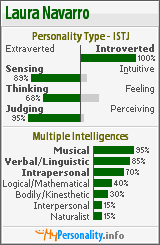Chapter 3 is about the sovereignty of God. It starts a section that covers the next few chapters.
This chapter covers the premise that God is sovereign, all-powerful over all things. He refers to James 4:13-15 to remind us that all that we do is at God’s will.
He permits, for reasons known only to Himself, people to act contrary to and in defiance of His revealed will. But He never permits them to act contrary to His sovereign will. p36
Bridges is explaining that both the malicious and willful malevolent acts of others are under God’s control, and the mistakes and failures of other people. Nothing is too trivial or too big to be beyond His control.
His sovereignty is not always apparent, He directs and guides people and events and things through normal actions. As chapter 4 discusses, He guides the will of a person, yet that person is still acting on their own volition. We aren’t dependent on some miracle to be saved from something. We have probably been saved many times just through choosing one path over another.
Since we know God is directing our lives to an ultimate end and He is capable of doing all that He wills, we can trust Him.
Chapter 4 moves in to more detail about God’s sovereignty over people. He admits there is some mystery here, but he uses several pieces of Scripture to show what we have been told about God’s working in the will of people. He prompts people to act favorably toward His own, and He restrains people from acting maliciously toward His own. And sometimes He permits bad things. He doesn’t cause another to sin, but He uses the sinful act to meet His own plans.
The mystery is that the Bible clearly shows people are making real choices of their own will. God’s ways are infinite and we cannot compare His moving someone’s will to the way we would try to move someone’s will.
Then he talks about how we should respond in light of this – this is where it gets a bit convicting!
Confidence in God’s sovereignty in the lives of people should also keep us from becoming resentful and bitter when we are treated unjustly or maliciously by others. p72
Bridges then looks at why we get bitter or stressed. It’s because our plans have been dashed or our pride has been wounded (p73). We should have only one agenda – God’s. When we have our own agenda, it will clash with God’s and cause anger and bitterness and stress. This fits right in with Del Tackett’s discussion about my script getting stepped on.
I should do my best, meet my responsibilities, and take my own part very seriously. No slacking just because “God’s sovereign”. But then I can rest in the knowledge that everything else is under God’s control. No frustration, anger, or bitterness. That would be so nice.



